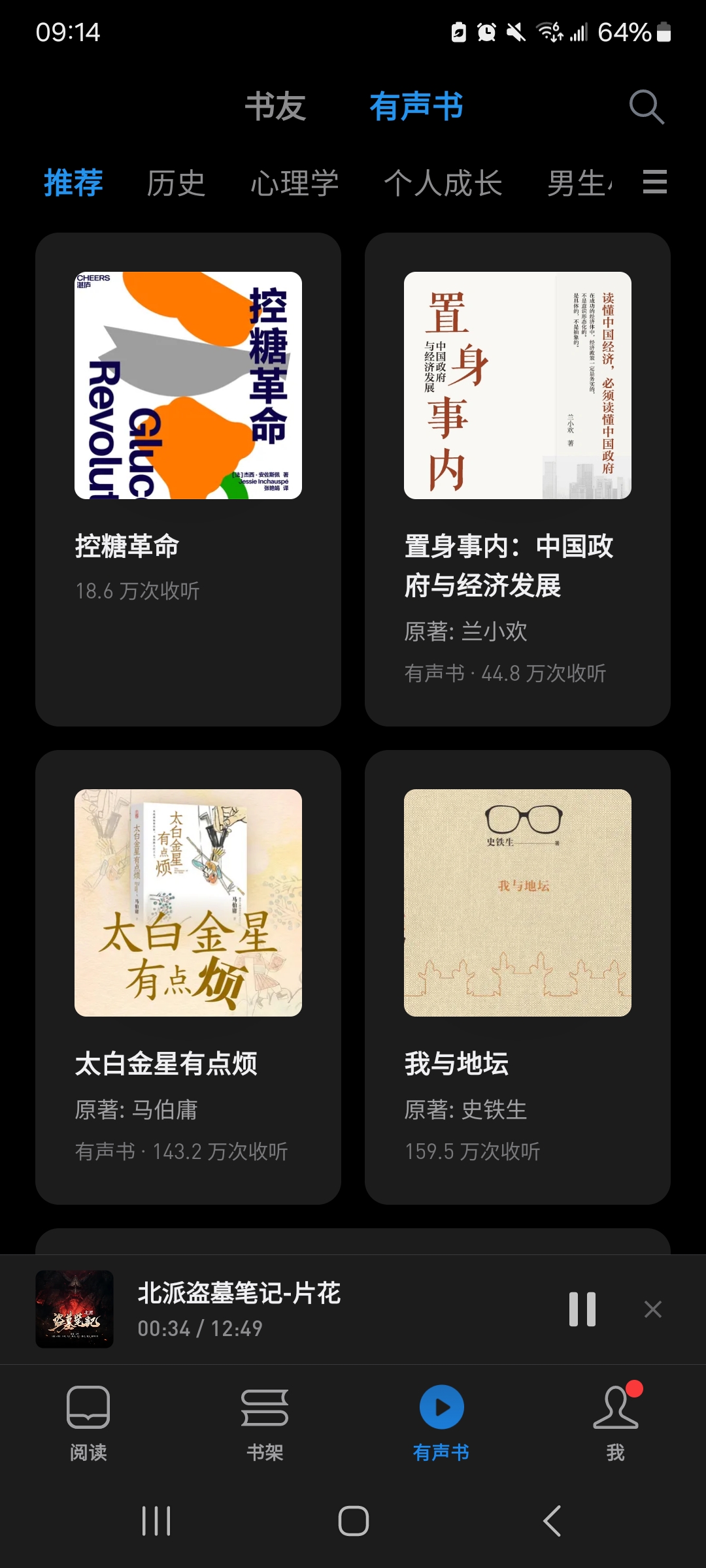If you want to speak Chinese, you need to spend a lot of time listening to Chinese. Listening should take up a large percentage of your study time and be your top priority. Podcasts are an incredible tool for listening practice because they are available at all levels and there is a podcast for every interest. You can put on a podcast and get passive Chinese input while doing chores or exercising, or you can use a podcast transcript and actively go through the audio bit by bit. How you incorporate podcasts into your study schedule is dependent on your level and study goals. Below you will find great podcasts for every level, but I encourage you to also find some on your own. While all the links below are for Spotify, most of these podcasts are also available on other popular podcast platforms.
Beginner
Listening to podcasts is a big leap because it removes all context and visual cues. Even if you have been studying Chinese for a while, podcasts may still be difficult. You may know every word in a sentence, but you still have a hard time understanding them when you hear them. That is why, even if your overall level is intermediate, you may still want to listen to beginner podcasts. You don’t need to understand every word in a podcast, it’s good to stretch a little above your level because you’ll learn new words through context. However, if you start zoning out because you don’t understand anything, then you should find something easier to listen to.
Melnyks Chinese
Melnyks Chinese is a great podcast for beginners because it starts with the very basics and walks you through vocabulary and grammar. It’s a great podcast for reviewing basic vocabulary, grammar, and phrases to help you build a strong foundation in Chinese.

ChinesePod
ChinesePod is a classic Chinese learning podcast that has been around for a long time. With thousands of lessons at all levels, it’s a great place to start listening to Chinese. For beginner lessons, the hosts of ChinesePod walk you through a Chinese dialogue breaking down the vocabulary and grammar in English. As you improve, the lessons start to have more Chinese and less English, so it’s the perfect podcast to ease yourself into listening to Chinese.

Chillchat
Chillchat is exactly what it sounds like. The hosts of this podcast create a relaxed learning environment where you can learn Chinese through natural teaching and conversation. One host is a native Chinese speaker and Chinese language teacher, and the other is a native English speaker and Chinese learner. Through their conversations and lessons, you will learn new vocabulary and grammar as well as hear what common mistakes another learner makes so you can correct your own Chinese in the future.

Intermediate
Podcasts at the intermediate level cover a wide variety of topics, grammar, and vocabulary. They are still spoken in clear, slow Chinese, but the vocabulary and grammar are much more varied than that of beginner podcasts. You may find them much more difficult than the beginner podcasts when you first start listening, but after a few weeks of repeated listening they will become easier. I recommend starting with shorter podcasts so you can listen to the episodes multiple times.
Maomi Chinese
Maomi Chinese is a great podcast for someone just starting the intermediate level. The topics are interesting and well explained, and the host provides English translations for the more advanced vocabulary to help you follow along. The episodes are also short, so you can easily listen to them multiple times.

Lazy Chinese
Lazy Chinese is another great podcast for lower intermediate learners. The host speaks in clear, easy to follow Chinese with lots of context and examples. They also provide transcripts, making this podcast great for shadowing!

Liaoliao Dongxi – Talk to Me in Chinese
This podcast is great for someone who is comfortable listening to conversational Chinese and wants to build up their confidence and comprehension of more complex topics. The topics covered in this podcast are varied and in-depth, and the host also has a YouTube channel where she uploads all the podcast episodes with subtitles, so you can follow along more easily.

Speak Chinese Naturally
Speak Chinese Naturally covers a variety of topics mostly related to China and Chinese culture. The host speaks clearly and at natural pace to help you build up your confidence listening to Chinese.

Advanced
At the advanced level, it’s time to start listening to podcasts created for native speakers. This will be very difficult at first, but as you listen, it will get easier. I recommend starting with just one podcast and listening to most of their episodes. Everyone speaks differently, and by listening to just one podcast, you will get used to the way the hosts talk, and you’ll have an easier time understanding the podcast. Every time you start listening to a new podcast, you need to get used to the way the host speaks before it becomes easy to understand. It takes thousands of hours of listening, to easily understand most everyday topics, so don’t be too hard on yourself if you don’t understand everything right away.
Gushi FM
A gritty and grounded podcast, Gushi FM takes inspiration from American programs such as “This American Life” and tells first-person stories of ordinary Chinese people from various backgrounds. The stories can often be heartbreaking as they focus on the difficulties and perils ordinary people face in life. This podcast is a great choice if you are interested in hearing real stories from Chinese people.

One Call Away
The hosts of One Call Away, Wendy and Iphie, talk about their life experiences, challenges they’ve faced, and things they find interesting. This podcast isn’t too difficult and great for listening practice because you’re listening to two friends have a conversation.

Bizarre Stories
Bizarre Stories is a podcast were the hosts talk about bizarre stories from all over the world. In each episode, the hosts banter back and forth as they discuss strange stories they find interesting.

Additional Listening Resource
Audiobooks and audio dramas are fantastic tools for listening practice, as they are both engaging and entertaining. I highly recommend listening to an audiobook while reading the corresponding book. This approach provides multiple forms of input simultaneously, which can greatly enhance your comprehension. You can find popular books through the websites listed in the reading resources section of the article linked below, and then locate the corresponding audiobook or audio drama using the additional resources provided.
Maoer FM -Freemium
Maoer is a popular app for listening to audio drama adaptations of Chinese novels, and it’s one of the best resources for learning Chinese. The app features engaging audio dramas told through dialogue and sound effects, making them more accessible than traditional audiobooks. Maoer also provides subtitles for its audio dramas, so you don’t have to rely solely on listening to understand what’s happening. While the app is best known for its danmei adaptations, it also offers dramas based on other types of novels. I highly recommend listening to audio drama adaptations after reading the book it’s based on, as it gives you the opportunity for repeat exposure to the material. Although most dramas on Maoer cost a few dollars per season, you can explore the top-ranked free dramas by clicking on 免费榜 on the front page. Additionally, Maoer does not require a Chinese payment service, as you can make purchases through the iOS or Android app stores.

Bilibili
Bilibili is a Chinese video-sharing platform similar to YouTube. You can find a variety of Chinese audiobooks and dramas on it. Look up “有声书” to see their selection of audiobooks or type in the name of a book followed by “有声书” to search for a specific title. Bilibili has many popular Chinese books and some you are likely already familiar with in English, such as The Little Prince and 1984.

You can also use the Chrome extension 哔哩哔哩助手 to download videos or audio from Bilibili. Start by installing and enabling the extension.

After the extension is enabled, the download window will automatically appear when you open a video on Bilibili. You will then have multiple options for the video you want to download. The first option is 高级 (advanced mode) which allows you to either download the video and audio together as one file or download the audio and video separately. The second option is 兼容 (compatibility mode) which uses less computer memory and downloads faster but only allows you to download audio and video separately. I usually use 高级. Next, under 高级, you will need to choose if 合并下载 (merge download) is 开 (on) or 关 (off). If it is on, you will have only one download link to download the file and the video and audio will be merged. If merge download is off, you will have two different download links to choose from, one for audio and one for video. The top link 音频 will download the audio file, and the bottom link 视频 will download the video file. For audiobooks, I just download the audio file via the top link.

Weixin Dushu- Freemium
Weixin Dushu is a reading service offered through WeChat, so it does require signing in with WeChat in order to be able to use it. The app offers many free eBooks and audiobooks. To view audiobooks go to the tab at the bottom of the app that says “有声书.” When listening to audiobooks, you also have the option to follow along with text by clicking on the AI 文稿 button in the lower left corner. This function highlights the text as it’s read out loud, making it easy to follow along with audiobook, and it’s a great tool for Chinese learners. To listen to premium audiobooks, you can buy a subscription for 19 RMB or ~2.50 USD per month, which is a very reasonable price for the service.

Ximalaya- Freemium
Ximalaya is a popular audiobook streaming service that offers a wide variety of high-quality audiobooks and podcasts similar to Audible. Most audiobooks are behind a subscription paywall, but it’s just a few dollars a month if you are using the Chinese version of the app and making purchases through Chinese payment services. If you are using the international version Himalaya, it’s a bit more expensive (~5 USD/month) and has less variety to choose from, but there are fewer hoops to jump through to make purchases.







